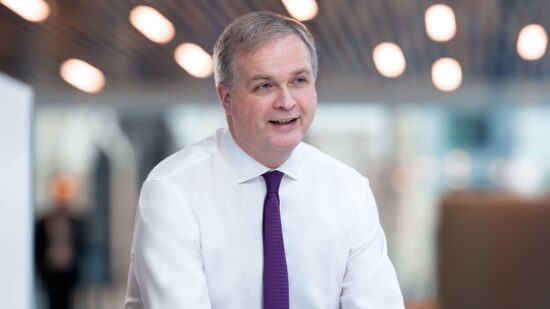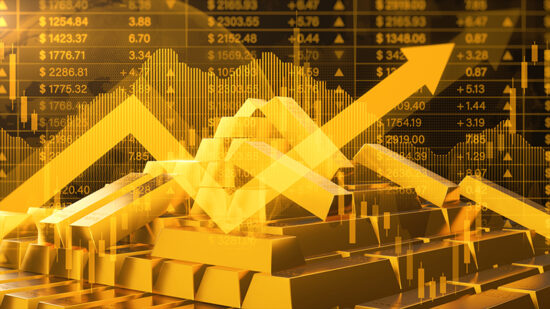For investors looking for a manager with the ability to weave a profitable path through the testing European equity space, Henderson Global Investors’ Richard Pease has become a go-to choice.
Pease has been managing European equities for his entire fund management career and now has a track record spanning more than two decades, beginning with his successful launch of the Windsor European Unit Trust in the late 1980s and including a ten-year stint managing the Jupiter European Fund between 1990 and 2000.
More recently he was a manager at the ill-fated New Star investment house which he joined in 2001 – the funds of which were acquired by
his current employer Henderson in April 2009.
Healthy returns
Indeed, Pease’s longest running fund, which he co-manages with Simon Rowe, is the £930m Henderson European Growth Fund, launched shortly after he joined New Star in 2001. According to figures from FE, the fund has returned 33% over the past five years, compared with a 15% return for the IMA Europe Ex UK sector.
The two other funds managed by Pease are the €70m Henderson Horizon European Growth Fund (part of the company’s Luxembourg Sicav) launched in February 2011, also co-managed with Rowe, and the £670m Henderson European Special Situations Fund (a UK OEIC) which was launched in October 2009 following Henderson’s acquisition of New Star. These have returned 28% and 58% respectively over the past five years to 16 May.
Continental drift
When Pease began investing in Europe 24 years ago, the Continent was seen as a more exotic investment than it is now. There was a perception that it was higher risk than investing in the more traditional investment destinations of the UK or US, although these risks were not those prevalent now – i.e. huge government debts, recession and unemployment.
Rather, the risk was in corporate governance and the shifting political landscape.
“Europe was much less sophisticated in many respects than the UK or the US,” says Pease. “There were all sorts of shenanigans going on and a lot of the companies were very political, especially in places like Italy and even Germany. You realise relatively early on that you had to have your interests’ in-line with the management or family who had control.
“This has changed. If you allow a lot of skulduggery, the cost of capital goes up and, without going into too much detail, I think eventually governments tend to embrace capitalism. I’d like to think Europe is pretty straight now.”
What we tend to do is keep stock much longer and, over time, we think we can make people a lot of money that way.
Richard Pease, Director of European Equities, Henderson Global Investments
Despite maturing, Europe again finds itself as an unnatural choice for today’s fund pickers. When economists talk growth and the areas of the world in which this is expected to happen, Europe is not top of the list.
According to the European Commission, the average GDP of the 27 countries within the European Union (EU) last year was -0.3% and it is predicted to remain in recession this year with growth forecast at -0.1%.
The statistics, which were published by the Commission at the end February, see the EU finally coming out of recession in 2014, with average growth of just 1.4%.
Positives from negatives
Compare this with the economy of China which is targeted by its government to grow by 7.5% in 2013, or India, which Standard & Poor’s recently predicted will grow by 6% this year, and the question over whether to invest in Europe seems almost irrational.
However, Pease says there is an important distinction to make here and one which helps to explain why his funds have managed to produce positive returns, even while Europe wallows in recession.
“Just because you’re born in Europe doesn’t mean you have to stay in Europe,” says Pease. “Around 35% of the sales of the companies we own are in euros and at the very least around 25% of that is from Northern Europe, not the troubled areas you read about. This means the companies we are choosing are deriving the majority of their income from further afield.”
Bucking the trend
A good example of this strategy is Kone, a company Pease holds in each of the three portfolios. Kone is a leading escalator and lift company which has its headquarters in Finland but with a significant proportion of its sales coming from the Middle East and Asia-Pacific. A glance at Kone’s first quarter interim report for 2013 shows why Pease likes it – orders were up more than a quarter over the period, while operating income hit €160m (£135m).
A snippet from the chief executive’s statement confirms the stock’s appeal: “The growth of the Chinese new equipment market was…clearly faster than we expected.” It is not often you read about growth being “faster than expected” in a company report.
Another example of a European company with significant overseas takings, and which is in the top ten of all three of Pease’s portfolios, is Givaudan, a Swiss-based flavourings and fragrance company.
According to the company’s website, “Givaudan holds a 25% market share in an industry which is valued overall at around CHF 17bn (€13bn, £11bn)”, the company adds that last year it achieved sales of CHF 4.3bn and, importantly, that it has “subsidiaries in more than 40 countries”.
Risks worth taking
Pease is a high conviction manager and talking with him, you can sense the very real passion he has for the companies he invests in and the people at their helm. This is in fact one of the aspects of fund management which Pease finds most attractive – “having the opportunity to meet very interesting people both at the peak of their careers in top jobs and those just starting out”.
However, it is arguable that his high conviction management style can come with added short-term risk.
In April a Morningstar OBSR fund analyst warned “investors should be aware of the elevated risks that come with Pease’s strategy and the potential swings in performance along the way to solid long-term returns”.
It should be noted that Morningstar gives the Henderson European Special Situations and Pease’s longest running fund, the Henderson European Growth Fund, silver and gold stars respectively.
No dice
Nevertheless, Pease rejects the analyst’s risk warning, arguing he “has not been rolling the dice” and points to the funds’ volatility which have been below the market average “practically forever”.
“The companies I like most are the sort which don’t need me. Kone doesn’t need me, Fuchs [a lubricant business] doesn’t need me, Symrise [flavourings & fragrance] doesn’t need me. You are lucky to be on board, rather than having to fund all of their ambitions because they don’t have a good business which generates cash – it’s a bit like the famous quote from comedian Groucho Marx, ‘any club which would have me I wouldn’t want to be a member of anyway’.”
Aside from having the courage of your convictions, and the ability to pick cash generative and successful companies, Pease said an attribute often overlooked is patience.
“Most of the time, if you buy a good business, all you need is the ‘magic ingredient’, patience. A lot of people think they’re being very clever because they are taking 25% out of a stock. What we tend to do is keep stock much longer and, over time, we think we can make people a lot of money that way.”








